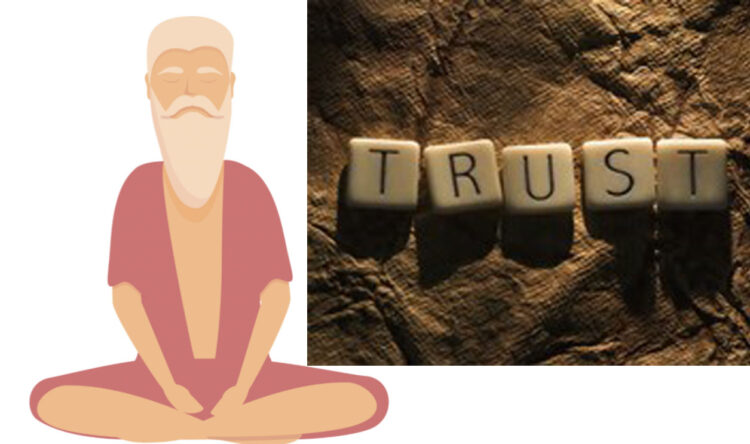When I express myself through writing or speech, the ‘I’ that I refer to often raises questions about its identity. Is this ‘I’ confined to the physical body, or does it extend beyond the realm of physics?
Right now, I am not near you as a physical entity yet, you perceive my presence through the thoughts conveyed by these words, which you (or the ‘I’ within you) interpret. I wonder, at the deepest level of consciousness, how you will separate the two ‘I’s!
Your understanding of ‘other’, especially on the spiritual level as well as, your comprehension of your own ‘I’ during solitary meditations, both occur within the domain of the mind. And, mind is non-local. Doesn’t it make amply clear that ‘I’ encompasses something more beyond your physical existence (despite your physical existence and not at its cost)?
Examine a few more examples. At times, you may have noticed that emotional injury hurts more than physical injury does. Instances of violence committed in anger or suicides resulting from overwhelming grief or mental distress underscore this truth that our ‘I’ beyond physical body can overpower ‘I’ within our physical body and cause harm to later. Therefore, identifying ourselves as ‘mind beings’ becomes our initial step toward discovering our true nature—unveiling who we are, how we are, and where we are. It is by rightly understanding ourselves as we really are, we can keep the violence at bay.
Belief is very much like imagination which can exist even in a single person totally unrelated and unknown to another person. But trust requires reciprocity
As individuals, let us interrogate our consciousness—who is this ‘I’? How is this ‘I’? Where is this ‘I’? In response to these three questions if I were to assert that this ‘I’ is the disciplined consciousness pervading all that exists, would this assertion resonate with the ‘I’ within you? Could you comprehend that all the three questions find their solution within my aforesaid single assertion?
More often than not conversations of this nature tend to divide the audience into factions. None in the factions see oneness/us-ness (sic). Some attempt to believe what has been asserted while others disbelieve it yet, all seek solace because they find momentary peace and a temporary escape from the omnipresent insecurity. Amid billions, hardly any pay attention to the true essence of such conversations which is to open before all -the hidden oneness/us-ness (sic). And, if that oneness/us-ness (sic) is seen by all of us the way it really is then, will it be possible for humanity in Gaza and Israel or, in Russia and Ukraine to behave the way it is behaving?
The real tragedy of humanity lies in its being ignorant of its own essence. Essence of humanity is- trust. Trust is based on realisation and it thrives on relationships which living human beings share with one another. Without real relationships, trust cannot exist. And, real relationships are born out of spiritual realisation. Material relationships have come into being accordingly. The irony is that the largest chunk of humanity believes in believing. And, any belief can exist independently unrelated to anyone else who is appearing to be related to anyone else or anything else. Belief is very much like imagination which can exist even in a single person totally unrelated and unknown to another person. But trust requires reciprocity. Therefore expanding the ‘I’ beyond oneself towards others is necessary for the ones who trust. It is very much like self-realisation where ‘I’ is seen encompassing all that exists in all the realms, the realms which may be known to many or the few and, may be unknown too, to too many others.
Imagine a Muni’s disciplined yogic life which enables him to attain the stage of transcendence so much so that his identification with the physical body is renounced completely non-violently when higher realms of meditation are attained by him. Now, imagine a radicalised suicide bomber who identified with the belief to such an extent that he is ready to consign not only one’s own body violently but many others too. Both identified their ‘I’ beyond body to a non-local entity called cosmic mind. But believing blindly converts human beings into a violent monster while yogic way of trusting guru transforms human beings into a disciplined consciousness. Which out of the two presents an example worth emulation by each and every human being across the earth?
Undoubtedly, the scope of ‘I’ surpasses mere bodily limitations and, all of us know this, but do we know the way we should necessarily know it? If this small difference in the way of knowing is bridged then the war zone may transform into a place of peace. As it is claimed to be the holy place of peace from all the stakeholders. Imagine, if the ‘I’ which I saw and described is seen as the same ‘I’ which you see and acknowledge as your ‘I’ then perhaps we will find the way to transform belief into trust and by implication war into peace. None can claim the occupation of a non-local entity, however all can share it.














Comments